The following individuals are passionate about the Arctic and in particular, community and citizen science. Together with the Steering Committee, we hope this will be the start of learning from one another and connecting with others participating in community and citizen science in the Far North. Contact us at connect [at] arcus.org.
Conference Organizers
Janet Warburton
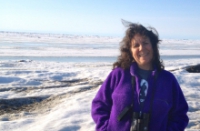
Arctic Research Consortium of the United States
Anchorage, AK
United States
Website
Janet Warburton joined ARCUS in October 2000. Her primary focus as Project Manager is developing and implementing education related projects that help ARCUS meet its mission. For over a decade, she has administered ARCUS' signature education program, PolarTREC - Teachers and Researchers Exploring and Collaborating. She is also currently working The Arctic in the Classroom, a program that focuses on citizen science projects in the Arctic. She is currently ARCUS' representative for University of the Arctic.
Prior to joining ARCUS, she worked and lived in the Arctic in Kotzebue, Alaska. She has worked both with the federal government and local school districts developing and revamping science education programs to be more place-based as well as focus on both natural resource management and local knowledge. She has an extensive background in developing student programs, as well as a background in marine mammal management and environmental education. Outside of ARCUS, she has served as President of Alaska Natural Resource and Outdoor Education Association, treasurer on Alaska Science Teachers Association, and is advisor for Polar Educators International as well as a mentor for the Association of Polar Early Career Scientists.
Lisa Sheffield Guy
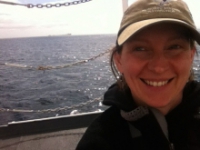
Arctic Research Consortium of the United States
Pescadero, CA
United States
Website
Lisa (she/her) joined ARCUS in 2015 as a Project Manager. Lisa works on a variety of programs at ARCUS, including the Sea Ice for Walrus Outlook, the Arctic Indigenous Scholars Program, The Arctic in the Classroom, and others. Lisa earned BS and MS degrees in Wildlife Science at Oregon State University where she studied seabirds as indicators of climate change on St. Lawrence Island, AK. Her professional interests include the impact of changing climate on ecosystems and communities, equitable inclusion of Indigenous Knowledge in science, science communication, and marine ecology. Lisa lives on unceded Ramaytush Ohlone land in Pescadero, CA with her family.
Lisa has worked on a variety of citizen science projects, including the Coastal Observation and Seabird Survey Team (COASST) and as Director of the Haystack Rock Awareness Program in Cannon Beach, Oregon. She is also a big fan of citizen science apps, such as eBird, for broader participation in science (she gets pretty excited about her eBird yard list - 115 species so far!)
Steering Committee Members
We are very excited to be working with the following talented and passionate individuals as they help guide the conference planning and implementation.
Dennis Davis
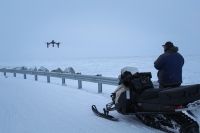
Shishmaref, AK
United States
Dennis Davis is from Shishmaref, Alaska, and specializes in utilizing drone technology to help serve community needs. For many years, Dennis has utilized professional commercial-grade drones to serve multiple needs in the community of Shishmaref. Dennis helps monitor extreme coastal erosion, something that Shishmaref is famous for, as well as quickly changing sea ice conditions. Dennis also helps monitor the conditions of the ocean and sea ice during the spring marine mammal hunts, which are extremely important for the community of Shishmaref. Mr. Davis also utilizes drone technology during emergencies and crises, such as search and rescue operations. Dennis is also an expert at utilizing social media platforms to advocate for rural communities in Alaska. (Twitter: @eskimofixer)
Katie Spellman
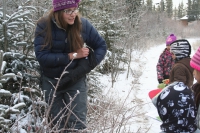
International Arctic Research Center (University of Alaska Fairbanks)
Fairbanks, AK
United States
Website
Communities that represent Katie (she/her): Fairbanks (through and through!)
I love community and citizen science! I have designed and/or coordinated ten large citizen and community science programs that have engaged several thousands of Alaskans on environmental change topics. I come to this effort as a scientist who uses the data, a practitioner who designs programs to try to maximize learning and actionable science production, and a volunteer who participates in Arctic community based monitoring and citizen science. My research focuses on: (1) the ways we do community and citizen science in the Arctic and the tradeoffs between different models of citizen science, from small co-created projects to large scale contributory programs; and (2) the ways plant communities (especially berries) are responding to climate change using community science approaches.
I hope we can increase the awareness of the breadth and depth of community science projects in our region and help define how the process can be done in the Arctic with practices centered in diversity, equity, inclusion, and justice.
Núria Castell

NILU
Kjeller, Norway
Europe
Website
Núria Castell, Senior Scientist at NILU, is the coordinator of the Technology and Society group, leading national and international research projects focused on the uptake and validation of novel sensor technologies and the integration of citizen observations in policy and research. She is currently coordinating the Horizon Europe CitiObs project, aiming at enhancing Citizen Observatories in 85 cities in Europe. Nuria’s academic pursuits encompass a wide-ranging spectrum of fields, including sustainable urban development, citizen science, environmental governance, planetary health, urban living labs experimentation and the intersection of science and art. Nuria also holds the position of co-chair of the Citizen Science Global Partnership group on Scaling-up citizen science Air-quality monitoring and the European Citizen Science Association's working group on air quality.
David Cairns
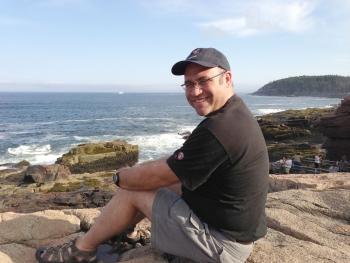
Texas A&M University
College Station, TX
United States
David Cairns is a Professor and the Department Head of the Geography Department at Texas A&M University. His primary research interests are on the impacts of climate change on vegetation at short and long time scales in a variety of environments. The focus of his work is on ecotones, the transition zones between different vegetation types. Most of his fieldwork has been accomplished at tree line in the western United States, Alaska, and in northern Sweden. He also has projects in two other sensitive environments: saltmarshes on the coasts of Denmark and Texas, and tundra environments on the North Slope of Alaska. Dave uses a variety of approaches including population genetics, dendroecological methods, and simulation modeling to answer questions about how these environments respond to climate change.
Audrey Taylor
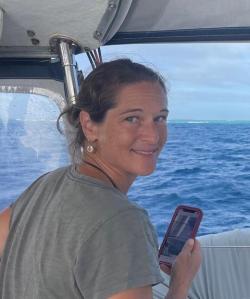
Pacific Ocean
United States
Audrey Taylor served on the faculty at the University of Alaska Anchorage for 10 years before leaving academia in 2022 to take a sailing sabbatical through the South Pacific with her family. She used citizen science frequently as a tool in her avian research toolbox, and was an advocate for the contributions of citizen and community science to Arctic observing. She is currently working for the Alaska Department of Fish and Game coordinating a major revision of the State of Alaska Wildlife Action Plan, but is still trying to stay involved with citizen science initiatives where possible. She is very excited to be participating in the Citizens of the Sea marine biodiversity and coral photogrammetry project this spring while en route to Fiji.
Svea Anderson
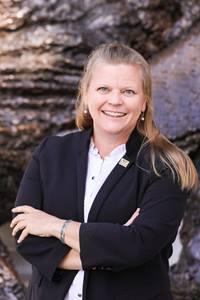
Einstein Fellow
Washington D.C.
United States
Svea Anderson is currently an Einstein Fellow at the U.S. Department of Homeland Security. She most recently taught 7th grade science at Flowing Wells Junior High in Tucson, Arizona. Throughout her career, Svea has received many honors and fellowships that focused on connecting students with STEM opportunities. In 2018, Svea was selected as a PolarTREC Educator and spent time in the Arctic, studying plant ecology with a researcher from the University of Alaska, Fairbanks. In 2019, she was selected as a Grosvenor Teacher Fellow, a partnership between National Geographic and Lindblad Expeditions. Also in 2019, Svea was honored with the Presidential Award for Excellence in Mathematics and Science Teaching (PAEMST.) Ms. Anderson also collaborates with the Science Friday Educator Collaborative. This collaborative develops free educational resources and activities using Science Friday media.
Svea has a passion for connecting underrepresented youth with STEM opportunities and education. She believes that offering students an opportunity to see themselves in STEM careers is essential to creating a strong career path to the future. Svea is always looking for new ways to connect learning back to current research, opportunities, and hands-on learning, in the STEM fields.
Sophie Crump
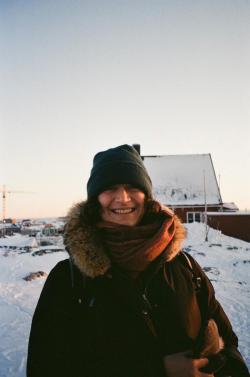
Arctic Eider Society, ᐃᓄᐃᑦ ᒥᑎᓕᒻᒥᐅ
Ottawa, Canada
Arctic Eider Website
SIKU Website
Sophie (she/her) is the SIKU Outreach Programs Manager at the Arctic Eider Society (ᐃᓄᐃᑦ ᒥᑎᓕᒻᒥᐅ), an Indigenous-led non-profit based in Sanikiluaq, Nunavut. In her work at AES she supports northern Indigenous communities to use SIKU for their environmental monitoring and research priorities and guardians programs, with workshops, project management support, and ongoing engagement. She has over a decade of experience working with grassroots research, education, and training activities including two years working in Nuuk, Kalaallit Nunaat, collaborating on Inuit-led community-development programs. She currently lives and works in Ottawa, Ontario, on unceded Algonquin territory.
